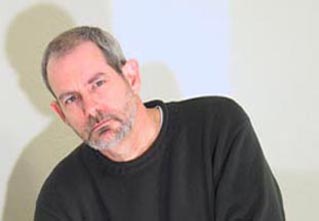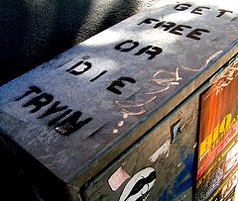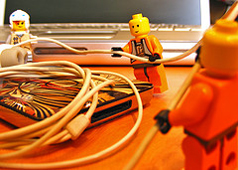This month would have been my dad’s 105th birthday, and, over the course of the rest of this month, I’m talking about some things that he taught me. I don’t remember my dad ever sitting down with me and saying “”Listen up…you need to learn this…” He taught by his life example, and a lot of the things on my list are things that were just clear in how he went about living. I “learned something new every day” I spent with my dad, particularly as I got older and started paying more attention. But at the same time, I am very aware of things that I learned early, because that’s just how things were. To start from the beginning of this series of posts, click here.
Last time, I wrote about how my dad’s upbringing transferred a sense of independence and self-reliance to me. But there was something else as a result of his growing up in farming communities: a sense of shared community. As I prepared to write this sentence, you didn’t notice a long pause, as I struggled with the knowledge that the written word can be accurate and yet misinterpreted.
There are layers and layers in the accumulation of a person’s life journey, and it is tempting to select the layers that serve a purpose. The words in italics in the previous paragraph are not meant to suggest an “us vs. them” mentality, but I am sensitive, in the current cultural climate, that they can be read that way. There was only one context in which I ever heard my dad consistently express we and they sentiments, and that was in recounting “how it was” during World War II. But he never failed to be precise that “them” did not include the Japanese Americans who were interned during the war. He (and I) considered that to be an act of fear of the unknown — an action he would not have personally taken because he saw beyond the easy knee-jerk, and knew individuals who were caught in the bureaucratic and legislative net.
Community, to my father, was the human race. And his approach was always, when he encountered someone in need, to help any way he could. He wasn’t a saint, and he couldn’t — and didn’t — help “everybody.” But, for instance, during the bracero period in California’s history (look it up…I believe it was a stupid decision to end that program), my father was the only insurance broker in a rather large town who went to the camps and helped people get insurance. Was it a smart business decision? Yes. Did I ever hear him couch it that way? No. He was helping people. At one point, my dad arranged housing so that a family could live together rather than being segregated by gender in the camps. I know that, because my cousin and I cleaned and painted that house so that the family had a better place to live.
What I learned was that you couldn’t help everybody. But you could help somebody with the means you had at your disposal. There was never “mine” and “yours.” (It’s easy for me to say that, because I have no siblings… ![]() ) I learned a world view that “love your neighbor” and the golden rule applied to people of a different color, who spoke a different language, and who had no way to return the favor except in gratitude.
) I learned a world view that “love your neighbor” and the golden rule applied to people of a different color, who spoke a different language, and who had no way to return the favor except in gratitude.
And isn’t that a great leadership principle? Is helping others by sharing what you have and what you know such a bad thing? Is co-operation for the greater good not eventually better than enmity?
How about you? Can we work together? Please leave a comment and let me know.
Ipod shuffle status (What is this?): 4305 (Let Me Count the Ways – Michael Franks) of 7875
…
Get my EBook The Choir in Modern Worship












You must log in to post a comment.